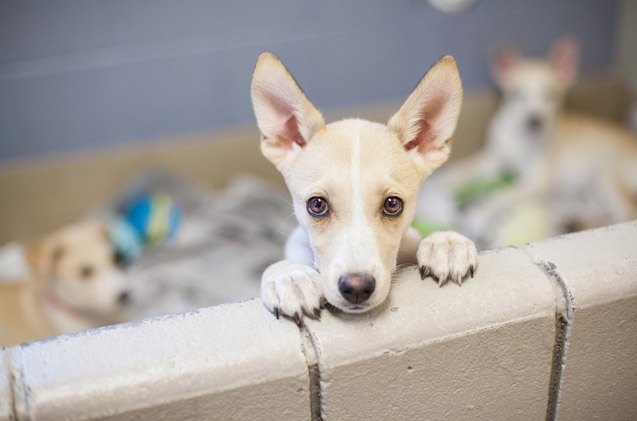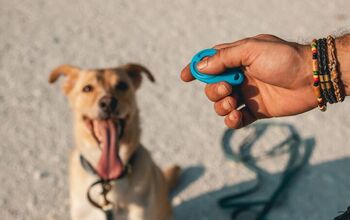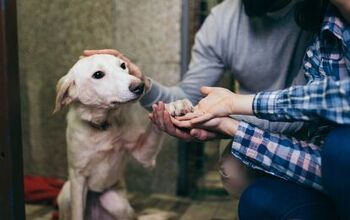What to Do If Your Newly Adopted Dog Isn’t a Good Fit

If you have your heart set on a new dog, consider adopting from a local shelter rather than buying a puppy from a breeder. Adopting a dog could mean literally saving a life and your new friend will be forever grateful. Unfortunately, shelter dogs often come with behavioral challenges and you don’t always get a good sense of a dog’s temperament until he settles in. So, what do you do if your new shelter dog isn’t a good fit? Here are some suggestions.
What Should You Do?
The shelter environment is scary and stressful for a dog, so many dogs in the shelter system seem calm and subdued until you get them home. Once they settle into their new environment, their personality and temperament starts to come out.
Related: 7 Ways a Shelter Dog Can Improve Your Life
While it is certainly not always the case, many dogs that enter the shelter system come from abusive or neglectful homes and they may have behavioral problems as a result. Even if this isn’t the case, adult dogs are much more set in their personalities than puppies so you may not be able to mold a shelter dog to fit your family or lifestyle as much as you could if you were to raise him from a puppy.
So, what do you do if you get your shelter dog home and, after a few weeks or months, it becomes obvious that it’s just not a good fit?
Before you do anything, ask yourself whether you’ve really made the effort to make it work. Did you take the dog to the vet to check for medical problems that could be influencing his behavior? Did you take your job of training and socializing the dog seriously? If you can honestly answer “Yes” to both of these questions, you can start thinking about other options.
Your first instinct may be to ask around to see if any of your friends are looking for a dog. The problem here is that if the next home doesn’t work out, the dog is going to keep going from family to family and that isn’t good for him. Many shelters make you sign an agreement that you’ll return the dog if it doesn’t work out. This is so they can work with the next adopter to ensure that the next home becomes the dog’s permanent home.
Related: Things To Consider Before Surrendering Your Dog To A Shelter
Do It Right the First Time
If you want to avoid the problem described above, take your time when choosing a pet to adopt. Most animal shelters encourage volunteers to spend time with the animals and to take notes on their behavior and temperament.
For dogs that have been fostered, you’ll have even more information about them and how they act in a home environment. If you have specific requirements or preferences for your new pet, work with an adoption counsellor to find a pet that will meet your needs. If none of these options is available, ask if you can foster the dog for a week or two as a trial-run.
Adopting a dog is a noble and wonderful thing, but sometimes not even the best of intentions are enough to make something work. If you find yourself with an adopted dog that just doesn’t fit with your family or lifestyle, the best thing you can do is return him to the shelter so he has an opportunity to find a better fit. It’s a difficult choice to make but ultimately the best for both of you.

Kate Barrington is the loving owner of two cats (Bagel and Munchkin) and a noisy herd of guinea pigs. Having grown up with golden retrievers, Kate has a great deal of experience with dogs but labels herself a lover of all pets. Having received a Bachelor's degree in English, Kate has combined her love for pets and her passion for writing to create her own freelance writing business, specializing in the pet niche.
More by Kate Barrington























